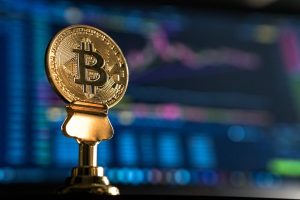The Future of Forex Trading: Predictions from Industry Experts
The forex market is the largest and most liquid financial market in the world, with an average daily trading volume of over $6 trillion. Forex trading involves the buying and selling of currencies, and it offers a wide range of opportunities for investors to profit from the fluctuations in exchange rates.
As the financial industry continues to evolve, so does the forex market. New technologies, regulatory changes, and shifting investor preferences are all factors that shape the future of forex trading. To gain insights into what lies ahead, we turn to industry experts who have been closely following the trends and developments in the forex market.
1. Increased Adoption of Artificial Intelligence and Machine Learning
One of the key trends that industry experts predict is the increased adoption of artificial intelligence (AI) and machine learning (ML) in forex trading. These technologies have the potential to revolutionize the way traders analyze data, make predictions, and execute trades.
AI and ML algorithms can process vast amounts of data, identify patterns, and make predictions with greater accuracy and speed than humans. This can help traders make more informed decisions and improve their overall trading performance. With advancements in computing power and data availability, AI and ML are expected to become an integral part of forex trading strategies in the future.
2. Shift towards Algorithmic and High-Frequency Trading
Another prediction from industry experts is the continued shift towards algorithmic and high-frequency trading in the forex market. Algorithmic trading involves using pre-programmed instructions to execute trades automatically based on predefined criteria. High-frequency trading, on the other hand, refers to the use of powerful computers and advanced algorithms to execute a large number of trades within milliseconds.
These trading strategies rely on speed, precision, and automation to capitalize on small price movements and exploit market inefficiencies. As technology continues to advance, more traders are expected to adopt algorithmic and high-frequency trading strategies to gain a competitive edge in the fast-paced forex market.
3. Integration of Blockchain Technology
Blockchain technology has gained significant attention in recent years, primarily due to its association with cryptocurrencies like Bitcoin. However, industry experts predict that blockchain technology will have a broader impact on the financial industry, including forex trading.
Blockchain technology offers enhanced security, transparency, and efficiency in financial transactions. It can eliminate the need for intermediaries, reduce settlement times, and provide a decentralized platform for forex trading. Additionally, blockchain-based smart contracts can automate and enforce trading agreements, further streamlining the forex trading process.
4. Emphasis on Regulation and Investor Protection
While technological advancements offer numerous benefits to forex traders, industry experts also predict an increased emphasis on regulation and investor protection in the future. The forex market has historically been decentralized and subject to minimal regulation. However, as the market continues to grow and attract more retail investors, regulators are expected to implement stricter rules and oversight.
Regulatory bodies around the world are already taking steps to protect investors from fraudulent practices and ensure fair trading conditions. This includes imposing leverage limits, requiring brokers to adhere to specific capital requirements, and enhancing transparency in pricing and execution.
5. Evolution of Social Trading and Copy Trading
Social trading and copy trading have gained popularity in recent years, allowing retail investors to replicate the trades of successful traders. This trend is expected to continue evolving in the future, with industry experts predicting the integration of social media platforms, advanced analytics, and artificial intelligence in social and copy trading platforms.
These advancements will enable investors to access real-time trading insights, identify top-performing traders, and automatically copy their trades. The integration of social trading with advanced analytics and AI can help investors make more informed decisions and improve their overall trading performance.
In conclusion, the future of forex trading is likely to be shaped by advancements in technology, increased regulation, and changing investor preferences. Artificial intelligence, machine learning, algorithmic trading, high-frequency trading, blockchain technology, and social trading are all expected to play significant roles in shaping the future of the forex market. As traders and investors, it is essential to stay informed about these trends and adapt to the evolving landscape to maximize opportunities and navigate potential challenges.





